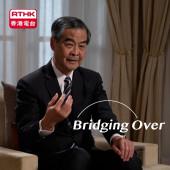 載入中 ...
載入中 ...
返回
Legislator Holden Chow
2018-05-27
Legco arranged a bipartisan tour to the Guangdong Bay area last month. The tour was meaningful and the participants including myself are entitled to plenty of knowledge about the latest development in Mainland. Especially the development in innovation & technology would impress many. We have visited a few technological centres in Guangdong, including the headquarters of Huawei in Shenzhen, and innovative centre in Dongguan.
Huawei, not only a leading manufacturer of mobile phones, but also a global pioneer in providing a wide range of cutting edge technology solutions plus applications of Artificial Intelligence (“AI”). The representatives have explained to us their latest applications and also the smart city being developed in Mainland. Take government service as an example, some of the local government are now able to offer one-stop services to residents, in other words, residents could simply pay government bills and process driving license applications in one go. It has saved their time from visiting different government department to process different requests.
Besides I also find the manufacturing base in Dongguan astonishing. Dongguan, starting from manufacturing shoes and textiles, has been transformed into an advanced manufacturing base with innovative products including robots. The research and development centre there plays a vital role in this connection. Some of the outstanding HK research talents from the University of Science and Technology have decided to move to Dongguan to continue their research. The main reason being that the mainland authority is not only able to offer them adequate financial resources, and the authority would also facilitate them even in sourcing parts for making the final products, say robots. Advice in marketing products is surely included in the service. The research team can therefore truly focus on research & development work, save them a lot of troubles in handling the said matters in which they don’t have expertise.
Hong Kong, on the other hand, has been vowing to develop our innovative & technology industry. Despite the hefty sum of 50 billion dollars being devoted into the sector in the latest budget, many would doubt whether the government is able to catch up in due course. Developing a new industry not only requires money, but also the coordinating effort by the government itself. Take smart city as an example, electronic devices are installed everywhere around the world to notify bus passengers the real-time bus services information. HK, such application has yet to be common here. We lag behind other cities not because of lacking resources, but because of the reluctance of coordination and accommodating effort made by the government. Bureaucracy could turn you down, protocol would not allow new innovations to easily be embraced by the government. And more important, if there is something wrong with the new innovations, bureaucrats are to bear the responsibility. Making a breakthrough may not enable you to earn any brownie points, but a major mistake could kill somebody’s career. There is no incentive for bureaucrats to take up new challenges. That is enough to explain HK’s situation.
But the future of HK in this regard might not look bleak, HK indeed has advantage due to our renowned rule of law, and our robust legal systems in protecting intellectual property rights. If we can make full use of such advantage, equipped with the genuine support from the government, we will still be able to attract international talents and technology institutions to carry out their work here and find our way out. Another piece of good news is, recently, President Xi Jinping pledged to support HK on all fronts, with an aim to transform HK into a global leading innovation and technology hub.
As a patriot, I am so delighted to witness China’s latest development, including economic success and the technology achievement. Few years ago, when Germany launched the Industry 4.0 campaign, which showcased the world their use of AI and robots, with a heavy reduction in manpower in advanced manufacturing, China subsequently launched its own “Made in China 2025”, vowing to upgrade the entire manufacturing industry, with the ability to produce high-tech and complicated products with decent quality. Around 100 years ago, Germany started from scratch, learned from England, established their manufacturing industry. Back then, “Made in Germany” were widely perceived as inferior to England’s products, people would doubt whether Germany could ever catch up with England. A century later, however, with the enormous effort, Germany becomes global industrial leader. This is encouraging history. So far we do see some good progress in the Guangdong Bay Area. HK, against this backdrop of Bay Area’s development, should make good use of the opportunity ahead.
Some may relentlessly challenge the proposed integration with Bay Area and even suggest HK should never co-operate with Mainland. Whenever we come across any ideas purely for enhancing convenience for HK residents to live and work in Mainland, some would turn on these ideas as if they are betraying HK people. I take the view that such thoughts are immature and rather irresponsible, many HK people wish to develop their career elsewhere in Mainland, we ought not to deprive their opportunities and their rights to do so. Under our one country two systems, If those who are staunch opposition to China do not come to terms with economic integration with Mainland, eventually we will be left idled and may fail to sustain our economic stability, causing harm to our livelihood.
Huawei, not only a leading manufacturer of mobile phones, but also a global pioneer in providing a wide range of cutting edge technology solutions plus applications of Artificial Intelligence (“AI”). The representatives have explained to us their latest applications and also the smart city being developed in Mainland. Take government service as an example, some of the local government are now able to offer one-stop services to residents, in other words, residents could simply pay government bills and process driving license applications in one go. It has saved their time from visiting different government department to process different requests.
Besides I also find the manufacturing base in Dongguan astonishing. Dongguan, starting from manufacturing shoes and textiles, has been transformed into an advanced manufacturing base with innovative products including robots. The research and development centre there plays a vital role in this connection. Some of the outstanding HK research talents from the University of Science and Technology have decided to move to Dongguan to continue their research. The main reason being that the mainland authority is not only able to offer them adequate financial resources, and the authority would also facilitate them even in sourcing parts for making the final products, say robots. Advice in marketing products is surely included in the service. The research team can therefore truly focus on research & development work, save them a lot of troubles in handling the said matters in which they don’t have expertise.
Hong Kong, on the other hand, has been vowing to develop our innovative & technology industry. Despite the hefty sum of 50 billion dollars being devoted into the sector in the latest budget, many would doubt whether the government is able to catch up in due course. Developing a new industry not only requires money, but also the coordinating effort by the government itself. Take smart city as an example, electronic devices are installed everywhere around the world to notify bus passengers the real-time bus services information. HK, such application has yet to be common here. We lag behind other cities not because of lacking resources, but because of the reluctance of coordination and accommodating effort made by the government. Bureaucracy could turn you down, protocol would not allow new innovations to easily be embraced by the government. And more important, if there is something wrong with the new innovations, bureaucrats are to bear the responsibility. Making a breakthrough may not enable you to earn any brownie points, but a major mistake could kill somebody’s career. There is no incentive for bureaucrats to take up new challenges. That is enough to explain HK’s situation.
But the future of HK in this regard might not look bleak, HK indeed has advantage due to our renowned rule of law, and our robust legal systems in protecting intellectual property rights. If we can make full use of such advantage, equipped with the genuine support from the government, we will still be able to attract international talents and technology institutions to carry out their work here and find our way out. Another piece of good news is, recently, President Xi Jinping pledged to support HK on all fronts, with an aim to transform HK into a global leading innovation and technology hub.
As a patriot, I am so delighted to witness China’s latest development, including economic success and the technology achievement. Few years ago, when Germany launched the Industry 4.0 campaign, which showcased the world their use of AI and robots, with a heavy reduction in manpower in advanced manufacturing, China subsequently launched its own “Made in China 2025”, vowing to upgrade the entire manufacturing industry, with the ability to produce high-tech and complicated products with decent quality. Around 100 years ago, Germany started from scratch, learned from England, established their manufacturing industry. Back then, “Made in Germany” were widely perceived as inferior to England’s products, people would doubt whether Germany could ever catch up with England. A century later, however, with the enormous effort, Germany becomes global industrial leader. This is encouraging history. So far we do see some good progress in the Guangdong Bay Area. HK, against this backdrop of Bay Area’s development, should make good use of the opportunity ahead.
Some may relentlessly challenge the proposed integration with Bay Area and even suggest HK should never co-operate with Mainland. Whenever we come across any ideas purely for enhancing convenience for HK residents to live and work in Mainland, some would turn on these ideas as if they are betraying HK people. I take the view that such thoughts are immature and rather irresponsible, many HK people wish to develop their career elsewhere in Mainland, we ought not to deprive their opportunities and their rights to do so. Under our one country two systems, If those who are staunch opposition to China do not come to terms with economic integration with Mainland, eventually we will be left idled and may fail to sustain our economic stability, causing harm to our livelihood.
Politicians and public figures from a range of backgrounds take turns to have their say on important matters of the day in this personal view programme.
Catch it live: Sunday 8:15am - 8:25am
Podcast: Updated weekly and available after broadcast.











